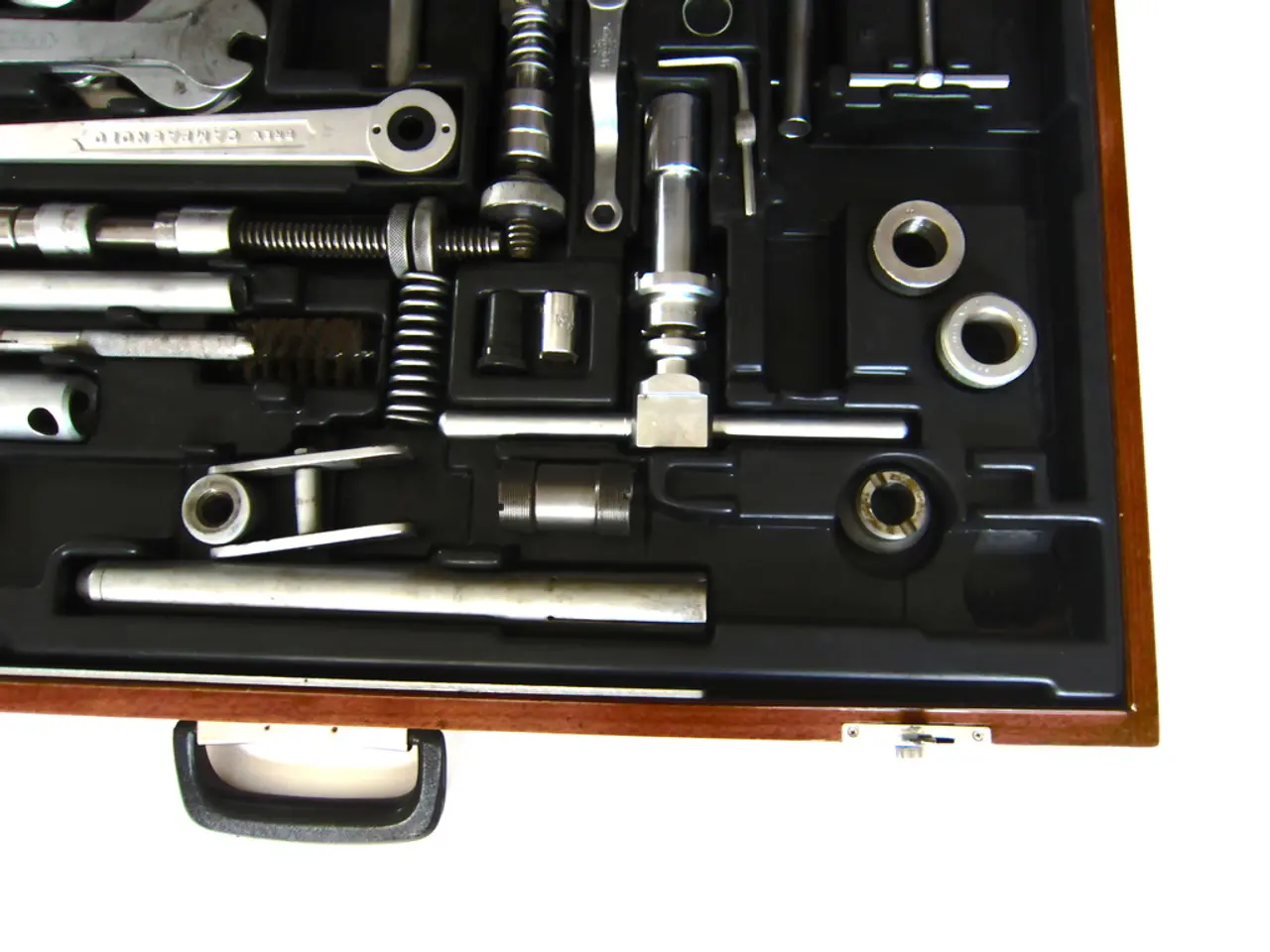Ride-hailing platforms in Beijing prohibit the inclusion of petrol vehicles due to their recent ban
In a significant move towards promoting green transportation and accelerating the transition to electric vehicles (EVs), multiple major Chinese cities have implemented bans on gasoline vehicles from participating in ride-hailing platforms. As of July 2025, Beijing, Shenzhen, Guangzhou, Dongguan, and Xi'an have enforced these restrictions, with Beijing being the latest city to do so since July 20, 2025[1][2][3][4].
This decision marks a broader national effort to support the growth of the new energy vehicle (NEV) industry and reduce urban air pollution. In line with this, only electric vehicles are now accepted for ride-hailing platforms in Beijing. Existing gasoline vehicle drivers have been notified that their vehicles must be replaced with green-plated electric models if they do not meet the required standards[1][4].
Shenzhen led the way, phasing out fuel cars from ride-hailing platforms as early as 2020. Guangzhou and Dongguan followed suit, and Xi'an advanced its timeline to fully retire fuel cars from ride-hailing in June 2025, ahead of the original 2028 schedule[1]. These bans support China's broader push to boost electric vehicle adoption, reduce urban air pollution, and meet environmental and climate goals[1][3].
The launch of the Oshan 520 electric sedan by Changan Automobile is a sign of increased focus on the ride-hailing market by some carmakers. The Oshan 520 is based on CATL's Choco-SEB battery swap solution, which saves owners more than 2 hours of charging time per day[5]. This focus on battery swap solutions for EVs is expected to further accelerate the transition to electric vehicles in the ride-hailing sector.
China's NEV industry is growing rapidly, with retail sales of China's passenger NEVs reaching 1.111 million units in June 2021, up 29.7% year-on-year and 8.2% from May[6]. The industry is set to continue its growth trajectory as more cities ban gasoline vehicles from ride-hailing platforms, pushing the industry towards full electrification.
In addition, Beijing had previously mandated that gasoline cars with emission standards below National 6 exit the ride-hailing market[7]. Several cities including Guangzhou and Dongguan no longer accept fuel cars on ride-hailing platforms. The report by China Automotive News notes that as more and more cities ban gasoline vehicles from ride-hailing platforms, the industry is set to accelerate into the era of electrification[8].
References: 1. China's Major Cities Ban Gasoline Vehicles from Ride-Hailing Platforms 2. Beijing Bans Gasoline Vehicles from Ride-Hailing Platforms 3. China's Green Transition: Banning Gasoline Vehicles from Ride-Hailing Platforms 4. Beijing's Ban on Gasoline Vehicles from Ride-Hailing Platforms 5. Changan Automobile Launches Battery Swap-Enabled Oshan 520 Electric Sedan 6. China's NEV Penetration at Retail Reaches 53.3% in June 7. Beijing Mandates Exit of Gasoline Cars with Low Emission Standards from Ride-Hailing Market 8. China's Ride-Hailing Industry to Accelerate into the Era of Electrification
- The Chinese government's policy of banning gasoline vehicles from participating in ride-hailing platforms, implemented in cities like Beijing, Shenzhen, Guangzhou, Dongguan, and Xi'an, is a significant evolution in the environmental-science and finance sectors, with an aim to promote the new energy vehicle (NEV) industry and reduce urban air pollution.
- The transition to electric vehicles (EVs) is accelerating in China, with Beijing now only accepting EVs for ride-hailing platforms, and existing gasoline vehicle drivers instructed to replace their vehicles if they do not meet the required standards.
- Shenzhen was the pioneer in phasing out fuel cars from ride-hailing platforms, initiating the transition as early as 2020, while other cities like Guangzhou, Dongguan, and Xi'an followed suit.
- The ban on gasoline vehicles from ride-hailing platforms supports China's broader push to boost EV adoption, reduce urban air pollution, and meet environmental and climate goals, as evidenced by the rapid growth of the NEV industry.
- The launch of the battery swap-enabled Oshan 520 electric sedan by Changan Automobile is indicative of increased focus on the ride-hailing market by some carmakers, and this focus on technology is expected to further accelerate the transition to electric vehicles in the sector.
- Retail sales of China's passenger NEVs reached 1.111 million units in June 2021, showing a consistent growth trajectory in the industry, as cities continue to ban gasoline vehicles from ride-hailing platforms.
- Beyond banning low emission standard gasoline cars from ride-hailing platforms, some cities like Beijing and Guangzhou have entirely removed fuel cars from these services, signaling a shift towards full electrification in the ride-hailing industry.




